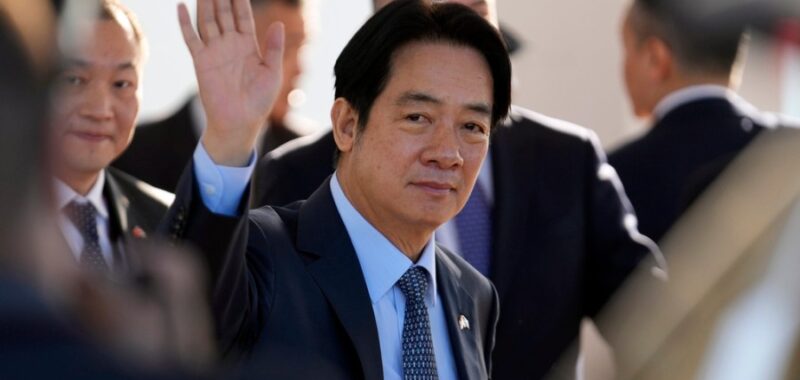
Taiwanese President William Lai Ching-te on Thursday vowed to resist Chinese annexation of his self-governing island nation as Taiwan celebrated its 113th National Day, provoking a harsh response from Beijing.
In a closely-watched speech during a ceremony for National Day in Taipei, Lai hailed the economic and technological progress of Taiwan and pledged to defend its sovereignty.
“The People’s Republic of China has no right to represent Taiwan,” he said. “I will also uphold the commitment to resist annexation or encroachment upon our sovereignty.”
Chinese Foreign Ministry spokesperson Mao Ning reacted to the speech by criticizing Lai for what she claimed was an “attempt to sever the historical connections” between the nations and an effort aimed at “peddling various versions” of Taiwan’s independence.
“It once again exposed that he is hellbent on advancing Taiwan independence and has the ill intention of heightening tensions in the Taiwan Strait for his selfish political interest,” Mao said at a Thursday briefing.
Lai, who was inaugurated as president in May, has advocated for maintaining the current relationship with China, and has been clear that his island will resist any Chinese aggression.
China, which sees Taiwan as historically part of the mainland, could launch military drills or exercises after the Thursday speech, a tactic Beijing has often deployed to intimidate the Taiwanese people, including mass exercises after Lai’s inauguration.
Chinese leader Xi Jinping has told his military to be ready by 2027 for a potential invasion of Taiwan, though the date does not mean a conflict will erupt that year.
Still, the U.S., which has informal relations with Taiwan but commits to supporting the nation, including with arms, is preparing its forces to also be ready by 2027.
A poll released this week by the Chicago Council of Global Affairs found that 51 percent of Americans believe the U.S. should encourage Taiwan to maintain the status quo, while 36 percent supported moving toward independence. Four percent supported unification with China.
But the poll also showed that 58 percent of Americans are against putting U.S. forces into a position where they would fight with China.
A separate poll from a Taiwan think tank found most Taiwanese take the threat from China seriously but around 61 percent do not believe an attack could happen in the next five years.

